A ‘dark skies’ area, the comet Ison can be seen from the clear skies of the Alentejo, high-tailing it past Venus. Alentejo is not where most tourists head when they go to Portugal; the bright coast of the Algarve or the windy hills of Lisbon, humming with Fado, tends to be the ticket. But for the food lover, Alentejo, south of Lisbon, inland, is the destination.
I’m on a press trip with the usual flotsam and jetsam crew of bloggers catching some winter rays. We arrived last night and our guide explained how to recognise Manueline architecture, pointed out a carob tree, and took us to a pasteleria in Beja that makes Portuguese custard tarts with cream (most use milk) as well as other historic recipes developed by frustrated nuns forced into convents.*
The desserts and pastries tend to be similar: egg yolk is a strong theme ingredient-wise. I’m shocked to discover the baker throws away the whites, around 1, 500 each day. I’m half-minded to set up a meringue shop next to her. Can’t bear waste. The Portuguese aren’t fans of meringues, she explains. The nuns used the egg whites to starch their habits, and in wine making.
The waiter at the monastery hotel restaurant where we stay, asks me if I want brinjal to eat.
Brinjal? Is that aubergine?
Portugal’s peak, in monetary terms and as a world power, was in the 15th and 16th centuries and things have sorta gone downhill from there. The Portuguese kings sponsored exploratory trips around the world, they discovered India, Macao, Brazil, Angola, and were the earliest trading partners with Japan. The Portuguese had the best ships, the smartest navigators, the choiciest trade routes. Portugal, the most westerly country in Europe, down the coast from Finisterre (the end of the world) looked out over the vast Atlantic Ocean every single day, wondering, dreaming, planning, calculating. The ships brought back wealth: spices, gold, silver, new plants, new animals. This nautical culture is celebrated in the details in the Manueline buildings; ropes carved from stone, bas reliefs of knots and astrolabs, compasses, constellations and stars.
Today Portugal is one of the poorest countries in Europe, while her younger richer fatter sister, Brazil, part of the BRIC set (Brazil, Russia, India, China) is booming. And within Portugal, Alentejo is a poor, dry region, with high unemployment. Which is possibly a good thing because nobody has had the money to fuck it up.
The tourist will find shiny white cobbled villages with dashes of duck blue and butter yellow paint, castles teetering on hilltops, monasteries and nunneries, connected by tunnels, with babies bones turning to dust underneath, converted to cathedral-sized hotels. The houses are tiled on the outside, like ornate bathrooms, turned inside out.
Today we visited Joana Roque and her daughters, who run a home bakery, a faggoty-flamed fire in her wood burning convex oven. She makes 40 sourdough loaves a day. She used to make thousands per week, but the local Portuguese prefer to buy bread from a supermarket. Fools. The bread is baked in front of us, a slow bake of one hour, I ask the temperature of the oven. She shrugs. Who knows? It works.
When it is shovelled out of the oven on a worn wooden peel, she cuts it into hunks, pours olive oil and brown sugar over it. The heat of the bread melts the sugar, while the olive oil knocks back the sweetness. It is divine. To be repeated at home.
Her daughter plucks pomegranates from the tree in the back yard, chickens squawk, bitter oranges tumble from branches, the sun streams through the beaded curtain. Joana rests her feet, her rosy swollen ankles in need of a rest. At 76, baking is very physical. Visit her house in Vidigueira.

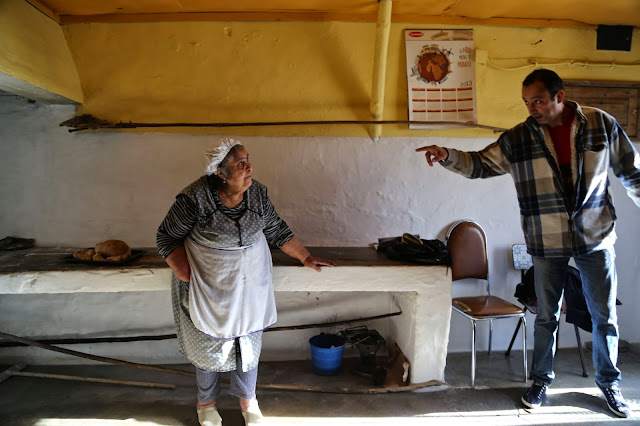
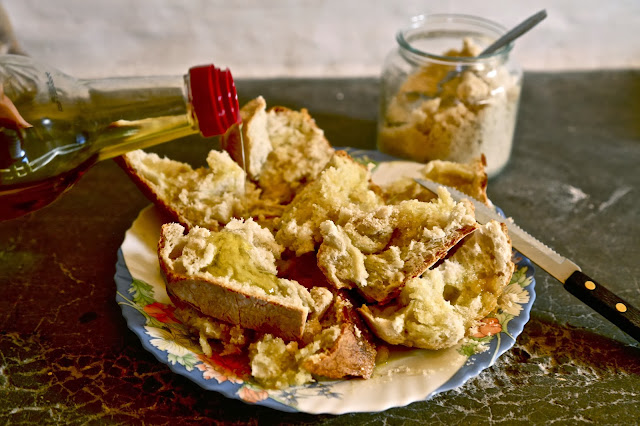
Olive oil is good for you. Astronauts drink it before going on a flight because it is helpful against radioactivity.We do an olive oil tasting in Moura. How you do it is this: a small amount is poured into a dark glass and a glass saucer is placed on top. You must not judge olive oil by the colour. Unlike wine, olive oil does not age. The newer the better. You warm the dark blue glass in your palms, so that the oil will soften and release odour. Remove the glass saucer. Take a big sniff. What do you get? Is there fruit? Is there spice? Is there mould? Then you taste, sucking it through your teeth. We taste three. Olive oil tastings have a maximum of 6 or 7 in a session. Wine tasters can do 40 different wines right off the bat. We feel the differing levels of greenness, of pepper hitting the throat, we are alert for any signs of rancid. Most farmers don’t know how to taste, explains our guide. It’s only recently that olive oil has become good, before it suffered from fermentation, but people are used to a ‘fusty’ taste. The difference between olive oil, virgin olive oil and extra virgin is that extra virgin must be without fault. Not a hint of fermentation. Extra virgin means very young.
Alentejo has become fashionable with people from Lisbon as a weekend retreat. In the last decade it has turned over the land to growing wine; small bespoke vinyards using Port grapes blended with more traditional varieties. The whites I have tasted are bright and minerally, the reds are weighty, with blackberry notes and liquorice and mint.
An artificial lake was built in 2002, making Alentejo fertile and wine production has increased. I spoke to the winemaker & owner of Herdade do Sobrosa, Felipe Teixera Pinto (a Julio Iglesias lookalike but even more handsome) about his wines. Portuguese wines sell well in Brazil and more recently to Angola, he told me. We are selling also to China, but they want French wines, the Chinese think in terms of brand not taste.
You can’t buy any other nationality wines in France, I mentioned.
It’s the same here, we don’t buy French wines in Portugal, shrugged Felipe. We don’t sell that many in the UK, the taxes are so high.
I heard this from several wine makers in the Alentejo region. So much for European solidarity, successive UK governments use wine, because it’s nice, and because they want to punish and deprive us of anything nice in our lives, as a excuse to skin us. A good bottle of Portuguese wine, costing perhaps 5 euros, would cost more than £20 in the UK.


1) They don’t put locks on toilet doors
2) They don’t put salt and pepper on the table.
3) They really love ornate lampshades and lamps.
Sunvil holidays sponsored this trip, they specialise in selecting unique places to stay. The herdade do Sobroso, just outside Vidigueira (herdade means ‘homestead’) was one of my favourites, roomy fireplaces, candlelit bathtubs, family style meals, Penny Royal (a popular herb in the region) liqueurs by the chimney. Cosy intimate luxury.
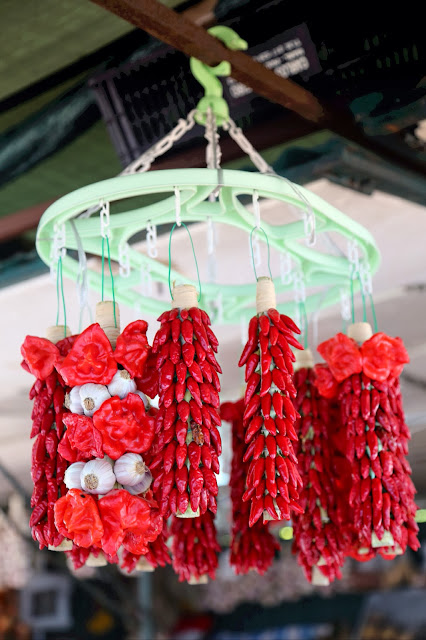
Another grand hotel, Convento Do Espinheiro, an ex monastery near Evora, they even have their own private church
A cafe at the hill-top village of Monsaraz
Another hill top castle which we visited at sunset. We could see Spain from there.
Sheep and goat’s cheese are more common than cows cheese, due to lack of pasture
A curtained doorway in Monsaraz
In Evora, the roman temple was filled in during the 14th century. It’s now been restored. Evora stems from the latin for ‘Yew’ tree, as is York in the UK.
Sheepskin slippers are cheap, I got a pair for 14 euros. These will be my ‘computer’ shoes this winter.
The cobbled village of Monsaraz

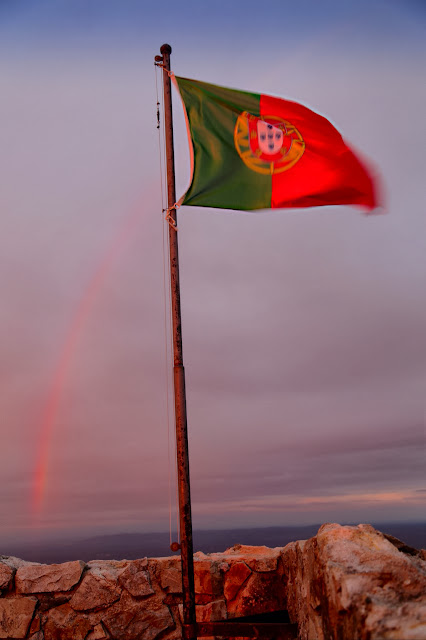

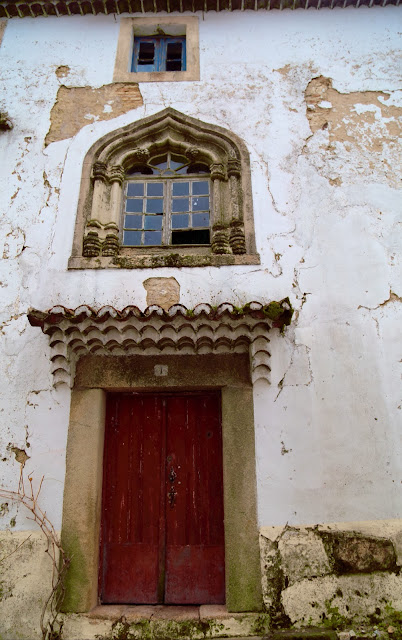
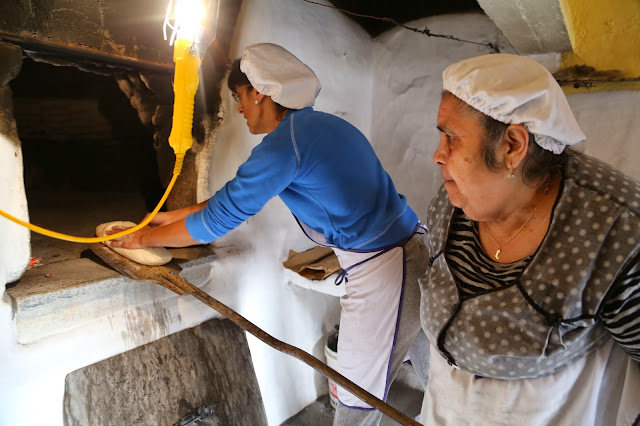


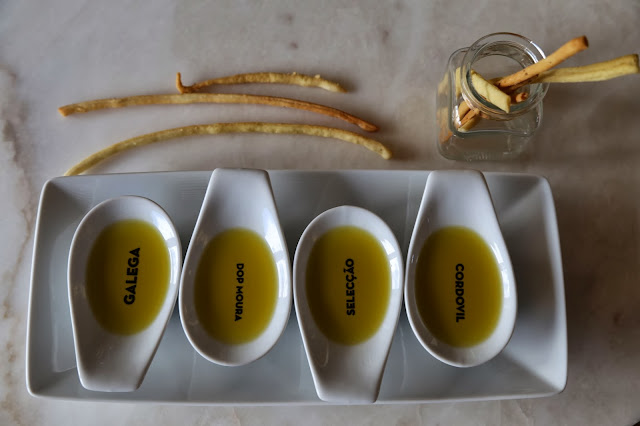
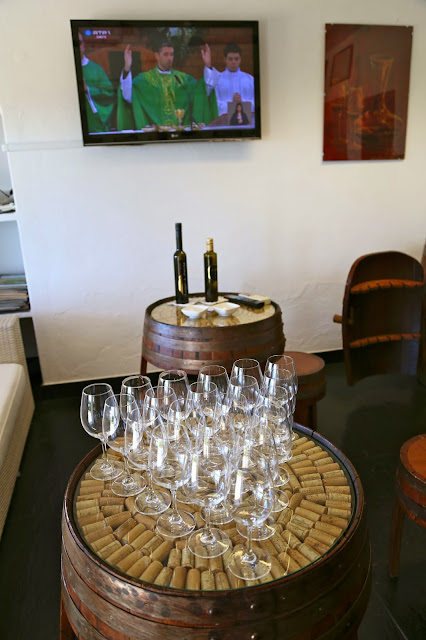




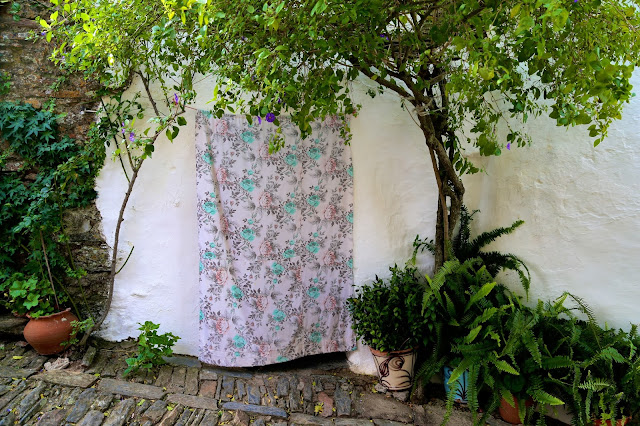
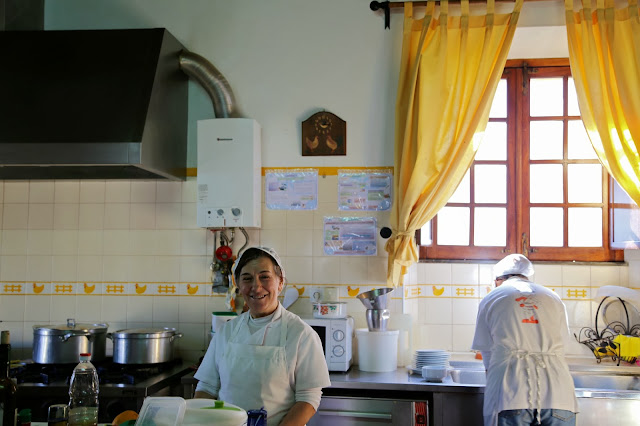

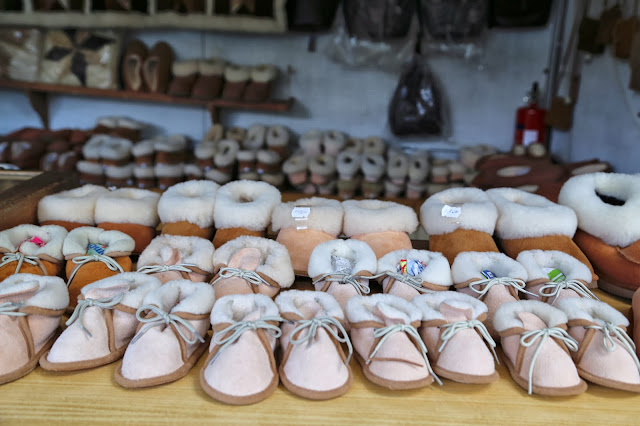

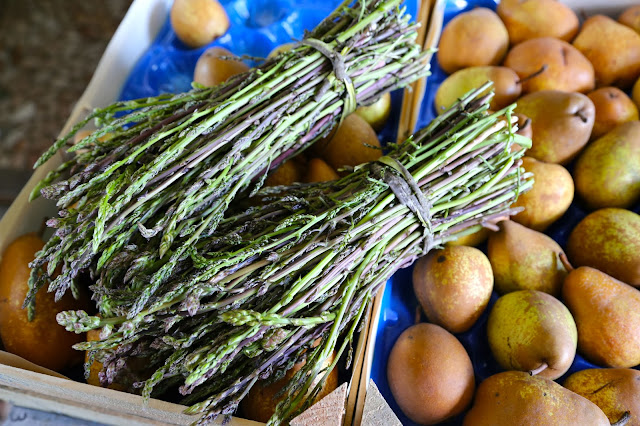





Incredibly beautiful pictures –
Thank you Zia x
Kerstin, I absolutely loved this blog – brought wonderful memories of the absolute joy of the lovely Alentejo region back to me a good twelve years after I last visited. Beautiful, beautiful – I MUST get back there soon – people are so wonderful, food is amazing, the wild flowers, the cork trees, the bulls, the arid beauty. Heaven.
I would like to spend more time there, in a more leisurely fashion. It's always hard being on a group trip, with people who aren't interested in the same things. The cork trees! I'm going to write another post talking about the cork.
Thanks for your comment Emma
Nice article, but for the sake of accuracy, I must point out that Brazil is nowhere near richer than Portugal. Although it's booming and Portugal is in crisis mode, Portugal is by far richer (GDP) and way more developed than its former colony (http://en.wikipedia.org/wiki/List_of_countries_by_GDP_(PPP)_per_capita).
Thanks Mario for your interesting comment. I spent 3 months in Brazil in the late 80s and even then I was stunned at how rich it was in terms of infrastructure. Obviously there is a huge divide between rich and poor there. I also spent time in Salvador da bahia and the Sertao. But I thought that Brazil was even richer now? In terms of Europe, Portugal is one of the poorest countries I believe.
Yes, Kerstin, Portugal is a poor country when compared to the rest of Western Europe. It's the poorest in the region (perhaps not any more with the situation in Greece…). But it's a mistake to say it's one of the poorest in the continent. All of Eastern Europe is much poorer and less developed (Georgia, Armenia, Latvia, Estonia, Moldova, Ukraine, Belarus, Croatia, Czech Republic, Poland, Slovakia, Slovenia, Hungary, Albania, Bulgaria, Bosnia, Macedonia, Romania, Serbia, Montenegro…)
Brazil has pockets of immense wealth, São Paulo is a major world business city, etc., but the country as a whole is "developing". It's also a rich country in terms of resources, but it's still a poor country. A large part of it, including in major cities like Rio and São Paulo's favelas is third world-like. The minimum wage is around 210 euros per month. The rich are very rich but they are a small minority. The middle class is growing, but facts are facts: saying that Brazil is richer than Portugal is absolutely incorrect. Not only is Portugal a richer, more developed country, it's much more so.
I only point this out for the sake of accuracy because poor or rich, every country has its own kind of wealth, and as you pointed out in your post, even the poorer part of Portugal, the Alentejo, has its charms and little treasures.
Oh for a bread oven in my living room. Really lovely post, Kerstin – I'm going to try that bread/olive oil/sugar combination as soon as my next loaf of sourdough is baked.
Thanks Michelle. I know how fab is that oven. My parents had an old cottage in France in my childhood and we had an oven like that attached to the fireplace. We never used it though, we didn't know how to.
What a lovely post, brings me good memories of Portugal when I was there. As an Anglo-Brazilian living in Brazil, I am very fond of Portugal. I felt incredibly at home in Portugal due to the shared heritage between Portugal and Brazil, everything seemed so familiar. Mario is right in saying that Brazil is poorer than Portugal. I live here and have so for most of my life. Not only are we poorer, but Brazil is now NOT booming, contrary to what the media is putting out. Our government is criplingly corrupt, violence is rife, education is pathetic and access to health is severely limited. Don`t let the propaganda fool you. Brazilians are fed up with the injustice and principally, by all the opportunities missed by the govenment to ameliorate life for Brazilians. Yet somehow, in spite of our predicaments and appaling circumstances, we carry on as we can with as much patience and good humour as we may afford. The truth is that Brazil has always been neglected. By the Portuguese when they ruled, and then by the Brazilian elite after independence from Portugal (we then became an empire ruled by the decendents of the Portuguese Royal Family for 67 years almost until the 20th century). Proclamation of the republic made things worse, as only in Brazil could the monarchy have been overthrown for being too liberal! We have unfortunately inherited a 16th century colonialist mindset in which the riches of this vast land are seen as plunder by the few civil servants who happen to be in power. Sorry about the rant! Love your blog, and I hold on to a small pot of Marmite (we can`t get it in Brazil) which I sparingly and cerimoniously use as a treat on special days on toast until some saint brings me one more dose from a trip to England. Thanks for bringing me English and European culture every week!